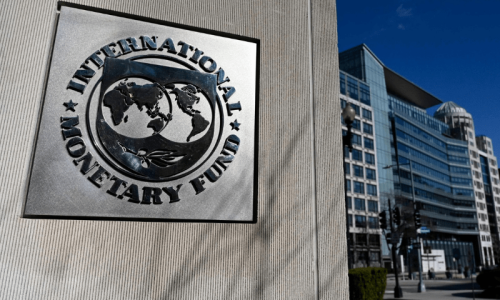People at the Privatization Commission (PC) must be jumping with joy. The National Bank of Pakistan (NBP) offering of 37.3 million shares (including the green shoe option) in November last year—the largest equity flotation to hit the country’s stock market in five years—had received an overwhelming public response.
Given the NBP’s strong financials, the offer at par value of Rs 10 a share, against most fair value estimates of around Rs 30 and the market’s healthy appetite for high growth, sound scrips, the successful disinvestment of 10 per cent shares through the stock exchange was understandable.
But the price that the government fetched in the competitive bidding for 90 per cent shares in Pak Saudi Fertiliser Company Limited (PSFL) last week sent some spontaneous sounds of joy through the otherwise tense hall. Fauji Fertiliser made the highest bid of Rs 135.85 per share.
Though at 8 per cent discount to the PC’s reference price of Rs 147, the Fauji’s offer stood out to be over twice the second best bid of Rs 70 per share made by Dawood Hercules. Everyone heard with disbelief the lacklustre offer of Rs 66.70 coming from Engro Chemicals.
Strapped for cash, few people expected Fauji to win the deal; most were betting on Engro, which turned out to be the wrong horse. But for weeks before the date of bidding, market had been rife with rumours that Engro had managed to cobble together a huge financial package with leading banks, in preparation of payment for the transaction. And no one really thought that Dawood Hercules was a serious contender, for the group already owns 25 per cent of Engro.
But the bottomline is that the government earned a cool sum of Rs 7.34 billion on sale of 54 million shares in Pak Saudi Fertiliser, at a fabulous price of Rs 135.63 per share. Given the huge difference between the prices quoted by the winner and the losers, Fauji’s acquisition of Pak Saudi has been variously termed by analysts— from “aggressive” to “expensive”. Some people worry that the purchase might go to weigh heavily on the company’s cash flows—at least in the short term.
It is assumed that Fauji Fertiliser would finance the transaction through a combination of debt and equity. With small debt on its books, Fauji is believed to be able to raise upto Rs 5.5 billion through outside borrowings without upsetting its debt/equity ratio. On the other hand, it could expect to earn over Rs 500 million in dividends on this investment. For financial year 2001, Pak Saudi Fertiliser had posted net income of Rs 628 million on net sales of Rs 3.96 billion.
The company— a joint venture between the governments of Pakistan and Saudi Arabia— has capacity to produce 557,000 tonnes of urea per annum, making it the largest urea producing unit in the public sector. And the acquisition, has enabled Fauji to wrest in excess of 55 per cent of Pakistan’s fertiliser market. The privatisation of Pak Saudi Fertiliser, therefore, looks to have been a well struck deal for both the buyer and the seller.
The PC now has its plate full. Up on the agenda for sale during the balance of the current calendar year are the following: 51 per cent strategic interest in United Bank Limited, which is targeted for bidding in March/April 2002. Then, in the second quarter of this year, the Commission would conduct 5-25 per cent Initial Public Offering of Habib Bank Limited; 15-26 per cent strategic sales with management control in Pakistan Telecommunication Company; 58 per cent shares in National Investment Trust and the right to mange Investment Corporation of Pakistan. Working interest in 9 oil/gas fields are set to go in April 2002.
Later in the third quarter of the year, bidding would be held for 51-74 per cent shares in Karachi Electric Supply Corporation and 51 per cent shares in Oil and Gas Development Corporation Limited and 51 per cent equity in Pakistan State Oil. For the last quarter of the year, the Commission targets sale of 51 per cent of Pakistan Petroleum Limited and 26-51 per cent of Faisalabad Electric Supply Company. These together make up more than ten huge entities which the Commission says it is set to put on the auction block before the year is out: more than one transaction every month.
Incontrovertibly, there never was a better time in recent memory to go about the business of sale of state-owned assets. The stock market has climbed by 45 per cent since January and is still rising; the State Bank is boasting some $5 billion in foreign exchange reserves and Pakistan appears to be back on the radar as a destination for overseas investment. But even if one were to ignore the past slow pace of privatisation, the belief that the Commission would be able to accomplish so much in so little time left— in what essentially is an election year— requires a giant leap of faith.















































Dear visitor, the comments section is undergoing an overhaul and will return soon.